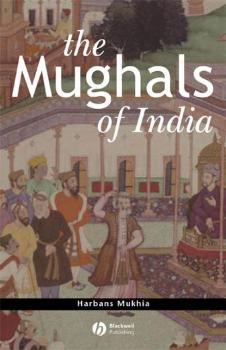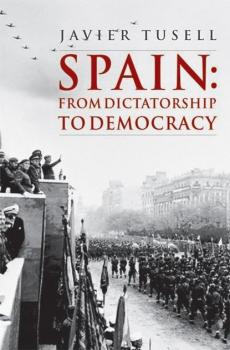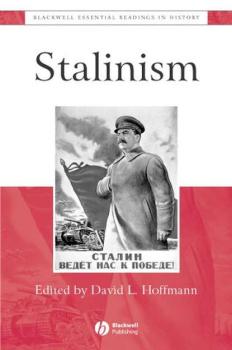Историческая литература
Различные книги в жанре Историческая литератураThe Mughals of India
This innovative book explores of the grandest and longest lasting empire in Indian history. Examines the history of the Mughal presence in India from 1526 to the mid-eighteenth century Creates a new framework for understanding the Mughal empire by addressing themes that have not been explored before. Subtly traces the legacy of the Mughals’ world in today’s India.
A Companion to Japanese History
A Companion to Japanese History provides an authoritative overview of current debates and approaches within the study of Japan’s history. Composed of 30 chapters written by an international group of scholars Combines traditional perspectives with the most recent scholarly concerns Supplements a chronological survey with targeted thematic analyses Presents stimulating interventions into individual controversies
A Companion to Roman Rhetoric
A Companion to Roman Rhetoric introduces the reader to the wide-ranging importance of rhetoric in Roman culture. A guide to Roman rhetoric from its origins to the Renaissance and beyond Comprises 32 original essays by leading international scholars Explores major figures Cicero and Quintilian in-depth Covers a broad range of topics such as rhetoric and politics, gender, status, self-identity, education, and literature Provides suggestions for further reading at the end of each chapter Includes a glossary of technical terms and an index of proper names and rhetorical concepts
A Social History of Byzantium
With original essays by leading scholars, this book explores the social history of the medieval eastern Roman Empire and offers illuminating new insights into our knowledge of Byzantine society. Provides interconnected essays of original scholarship relating to the social history of the Byzantine empire Offers groundbreaking theoretical and empirical research in the study of Byzantine society Includes helpful glossaries of sociological/theoretical terms and Byzantine/medieval terms
The Hellenistic Period
This book presents in translation 175 of the most revealing documents that have survived on stone and papyrus from the Hellenistic period. Presents over 150 sources in translation. Captures the political, social, economic and religious dynamism of the Hellenistic kingdoms and cities. Covers the entire Hellenistic world, with extensive coverage of the Ptolemaic kingdom.
Ancient Egyptian Imperialism
Offers a broad and unique look at Ancient Egypt during its long age of imperialism Written for enthusiasts and scholars of pharaonic Egypt, as well as for those interested in comparative imperialism, this book provides a look at some of the most intriguing evidence for grand strategy, low-level insurgencies, back-room deals, and complex colonial dynamics that exists for the Bronze Age world. It explores the actions of a variety of Egypt’s imperial governments from the dawn of the state until 1069 BCE as they endeavored to control fiercely independent mountain dwellers in Lebanon, urban populations in Canaan and Nubia, highly mobile Nilotic pastoralists, and predatory desert raiders. The book is especially valuable as it foregrounds the reactions of local populations and their active roles in shaping the trajectory of empire. With its emphasis on the experimental nature of imperialism and its attention to cross-cultural comparison and social history, this book offers a fresh perspective on a fascinating subject. Organized around central imperial themes—which are explored in depth at particular places and times in Egypt’s history—Ancient Egyptian Imperialism covers: Trade Before Empire—Empire Before the State (c. 3500-2686); Settler Colonialism (c. 2400-2160); Military Occupation (c. 2055-1775); Creolization, Collaboration, Colonization (c. 1775-1295); Motivation, Intimidation, Enticement (c. 1550-1295); Organization and Infrastructure (c. 1458-1295); Outwitting the State (c. 1362-1332); Conversions and Contractions in Egypt’s Northern Empire (c. 1295-1136); and Conversions and Contractions in Egypt’s Southern Empire (c. 1550-1069). Offers a wider focus of Egypt’s experimentation with empire than is covered by general Egyptologists Draws analogies to tactics employed by imperial governments and by dominated peoples in a variety of historically documented empires, both old world and new Answers questions such as “how often and to what degree did imperial blueprints undergo revisions?” Ancient Egyptian Imperialism is an excellent text for students and scholars of history, comparative history, and ancient history, as well for those interested in political science, anthropology, and the Biblical World.
A Companion to Roman Britain
This major survey of the history and culture of Roman Britain spans the period from the first century BC to the fifth century AD. Major survey of the history and culture of Roman Britain Brings together specialists to provide an overview of recent debates about this period Exceptionally broad coverage, embracing political, economic, cultural and religious life Focuses on changes in Roman Britain from the first century BC to the fifth century AD Includes pioneering studies of the human population and animal resources of the island.
Spain
This comprehensive survey of Spain’s history looks at the major political, social, and economic changes that took place from the end of the Civil War to the beginning of the twenty-first century. A thorough introduction to post-Civil War Spain, from its development under Franco and subsequent transition to democracy up to the present day Tusell was a celebrated public figure and historian. During his lifetime he negotiated the return to Spain of Picasso’s Guernica, was elected UCD councillor for Madrid, and became a respected media commentator before his untimely death in 2005 Includes a biography and political assessment of Francisco Franco Covers a number of pertinent topics, including fascism, isolationism, political opposition, economic development, decolonization, terrorism, foreign policy, and democracy Provides a context for understanding the continuing tensions between democracy and terrorism, including the effects of the 2004 Madrid Bombings
Stalinism
This book comprises 11 essays on Stalinism by both eminent historians and younger scholars who have conducted research in the newly opened Russian archives. They discuss both the origins and consequences of Stalinism, and illustrate recent scholarly trends in the field of Soviet history. A collection of essays on Stalinism by both eminent and younger scholars. Discusses both the origins and consequences of Stalinism. Provides an overview of the debates for students new to the subject. Includes the results of research in the newly opened Russian archives.
Peace
How peace has been made and maintained, experienced and imagined is not only a matter of historical interest, but also of pressing concern. Peace: A World History is the first study to explore the full spectrum of peace and peacemaking from prehistoric to contemporary times in a single volume aimed at improving their prospects. By focusing on key periods, events, people, ideas and texts, Antony Adolf shows how the inspiring possibilities and pragmatic limits of peace and peacemaking were shaped by their cultural contexts and, in turn, shaped local and global histories. Diplomatic, pacifist, legal, transformative non-violent and anti-war movements are just a few prominent examples. Proposed and performed in socio-economic, political, religious, philosophical and other ways, Adolf's presentation of the diversity of peace and peacemaking challenges the notions that peace is solely the absence of war, that this negation is the only task of peacemakers, and that history is exclusively written by military victors. “Without the victories of peacemakers and the resourcefulness of the peaceful,” he contends, “there would be no history to write.” This book is essential reading for students, scholars, policy-shapers, activists and general readers involved with how present forms of peace and peacemaking have been influenced by those of the past, and how future forms can benefit by taking these into account.









